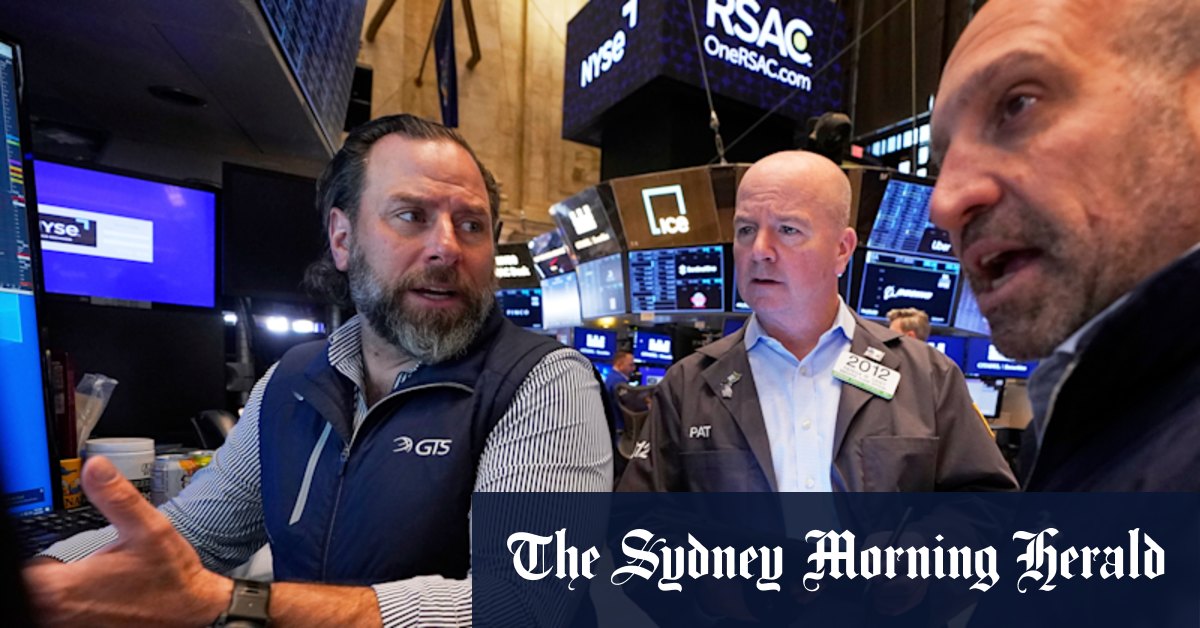Energy stocks were also weaker, with oil and gas giant Woodside down 1.2 per cent. Smaller rival Santos lost 0.4 per cent as investors digested the $30 billion takeover bid from Abu Dhabi’s national oil company and US global private equity firm Carlyle and the chances it will be cleared by the Albanese government at a time of heightened energy insecurity.
The lukewarm open to the local session comes despite a rally on Wall Street on Monday. The S&P 500 climbed 0.9 per cent to reclaim most of its drop from Friday. The Dow Jones rose 0.8 per cent, and the Nasdaq composite gained 1.5 per cent. They joined a worldwide climb for stock prices, stretching from Asia to Europe.
Trump earlier said Iran wants to talk about de-escalating the conflict with Israel even as the two sides exchanged fire for the fourth consecutive day. Asked if the US would get more involved militarily, the US leader said he didn’t want to discuss it.
Israel and Iran are continuing to attack each other, and a fear remains that a wider war could constrict the flow of Iran’s oil to its customers. That in turn could raise petrol prices worldwide and keep them high.
But past conflicts in the region have seen spikes for crude prices last only briefly. They’ve receded after the fighting showed that it would not disrupt the flow of oil, either Iran’s or other countries’ through the narrow Strait of Hormuz off Iran’s coast.
Hopes that the fighting could remain similarly contained this time around helped send oil prices lower before they rose again after Iran closed its oil refineries. A barrel of benchmark US oil fell 1.7 per cent to $US71.77, while Brent crude, the international standard, dropped 1.3 per cent to $US73.23 per barrel. They had both jumped roughly 7 per cent on Friday after the initial attacks.
Loading
Iran’s foreign minister, Abbas Araghchi, appeared to make a veiled outreach for the US to step in and negotiate an end to hostilities between Israel and Iran, saying in a post on X that a phone call from Washington to Israel’s leader “may pave the way for a return to diplomacy.”
Wall Street has plenty of other concerns in addition to the fighting in Iran and Israel. Key among them are President Donald Trump’s tariffs, which still threaten to slow the economy and raise inflation if the US government doesn’t win trade deals with other countries to reduce Trump’s taxes on imports.
Later this week, the Federal Reserve is set to discuss whether to lower or raise interest rates, with the decision due on Wednesday. The nearly unanimous expectation among traders and economists is that the Fed will make no move.
Loading
More important for financial markets on Wednesday will likely be the latest set of forecasts that Fed officials will publish for where they see the economy and interest rates heading in upcoming years. Economists at Bank of America say it could show a forecast for just one cut to interest rates this year, along with three more in 2026.
with AP and Bloomberg
The Market Recap newsletter is a wrap of the day’s trading. Get it each weekday afternoon.
